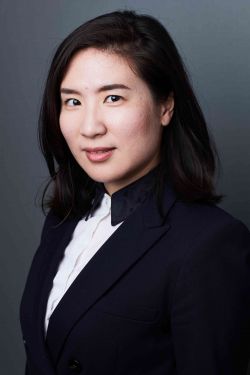

This name must match the name on file with the Social Security Administration (SSA). If the provider is an individual, this is the legal name.

The last name of the provider (if an individual). Many types of health care providers could be sole proprietorships (for example, group practices, pharmacies, home health agencies).NPPES does not capture a sole proprietorship's EIN. Often, the IRS assigns an EIN to a sole proprietorship in order to protect the sole proprietor's SSN from disclosure in claims or on W-2s.A sole proprietorship may or may not have employees.(See NPI Final Rule for information about subparts.) As an individual, a sole proprietorship cannot be a subpart and cannot have subparts.In terms of NPI assignment, a sole proprietor is an Entity type 1 (Individual) and is eligible for only one NPI (the sole proprietorship business is not eligible for its own NPI).


#Jing xu dds full#
Full Replica of the CMS (NPPES) NPI Record Field Nameġ0-position all-numeric identification number assigned by the NPS to uniquely identify a health care provider.Ĭode describing the type of health care provider that is being assigned an NPI. Dentists can also prescribe medications such as antibiotics, fluorides, pain killers, local anesthetics, sedatives/hypnotics and any other medications that serve in the treatment of the various conditions that arise in the head and neck.Reference NPI Information. Additionally, dentists can further engage in oral surgery procedures such as dental implant placement. Services provided by a Dentist: By nature of their general training, a licensed dentist can carry out most dental treatments such as tooth whitening, filling and restorative (like dental implants, crowns, bridges), orthodontics (braces), prosthodontic (dentures, crown/bridge), endodontic (root canal) therapy, periodontal (gum) therapy, and oral surgery (extraction of teeth), as well as performing examinations, taking radiographs (x-rays) and diagnosis. Additional post-graduate training is required to become a dental specialist. State licensing boards accept either degree as equivalent, and both degrees allow licensed individuals to practice the same scope of general dentistry.
#Jing xu dds plus#
Generally, three or more years of undergraduate education plus four years of dental school is required to graduate and become a general dentist. Both degrees use the same curriculum requirements set by the American Dental Association's Commission on Dental Accreditation. Universities have the prerogative to determine what degree is awarded. There is no difference between the two degrees: dentists who have a DMD or DDS (both have same education). Dentist: A dentist is a person who is qualified as a doctorate in dental surgery (D.D.S.) or dental medicine (D.M.D.), licensed by the state to practice dentistry, and practicing within the scope of that license.


 0 kommentar(er)
0 kommentar(er)
